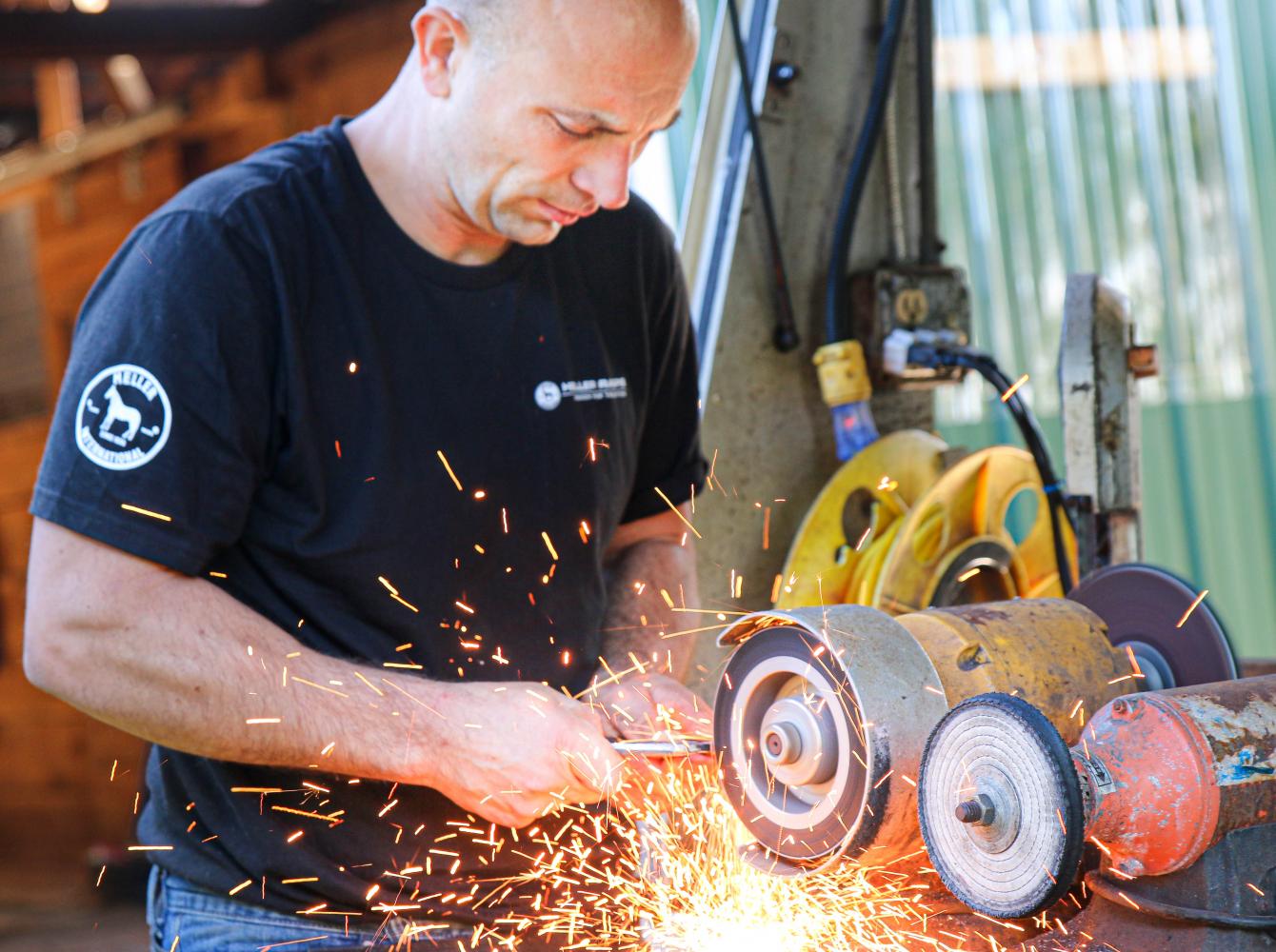
KEEPING IT SIMPLE
By Katie Navarra
Ben Mangan knew from a young age that he was destined to become a farrier. The 40-year-old certified journeyman farrier grew up in Vermont and started learning the trade from his uncle before he was a teenager. By the time he was 14, he had gained enough experience to spend summers in Ithaca, New York apprenticing under Buster Conklin, the retired farrier instructor at Cornell University.
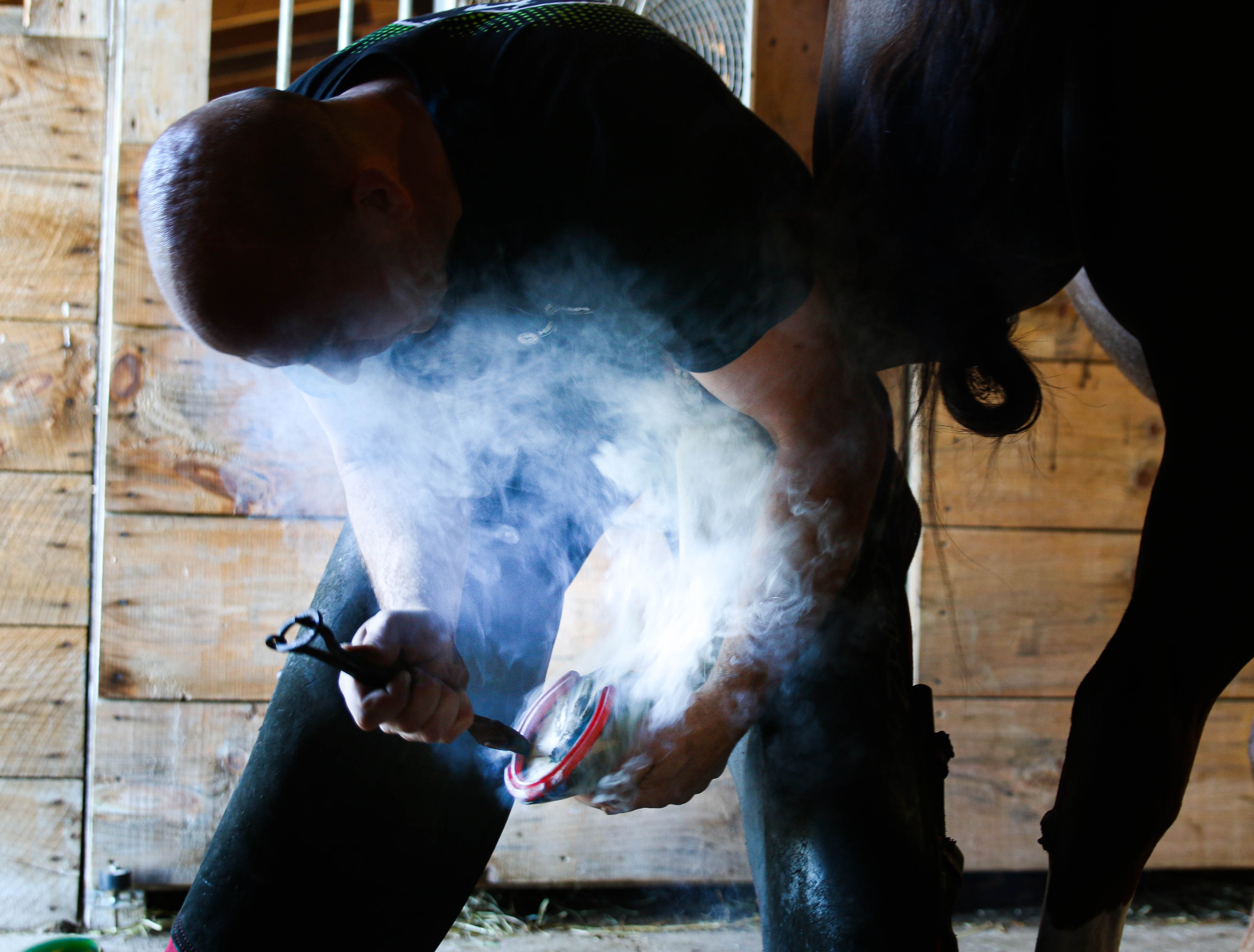
It was no surprise that horseshoeing would become his vocation, however, he never dreamed his career would prompt his first air travel and take him around the world. Until his 20s, he stuck to trips within driving distance. In 2005, Ben drove as far as Chattanooga, Tennessee to attend his first American Farriers Association Convention. That was his first national competition and it launched his career to the next level, which included air travel and prestigious contests.
“My first time on an airplane was to fly to New Mexico for a World Blacksmith Competition,” he says. “I was 26 at the time.”
Flying is as integral to his business as his tools—it’s a necessity for participating in international competitions. He has regularly competed in World Blacksmithing Competitions in Calgary, Canada, and was a three-time member of the AFA competition team, which traveled to England to practice with Grant Moon in advance of the competition.
“Grant sat on a bucket or the rail offering one-on-one critiquing for two-and-a-half days,” he says. “To have that influence the first time I was on the team and as my first time in the UK was overwhelming. I still look back and think about what I learned there that I didn’t even realize at the time.”
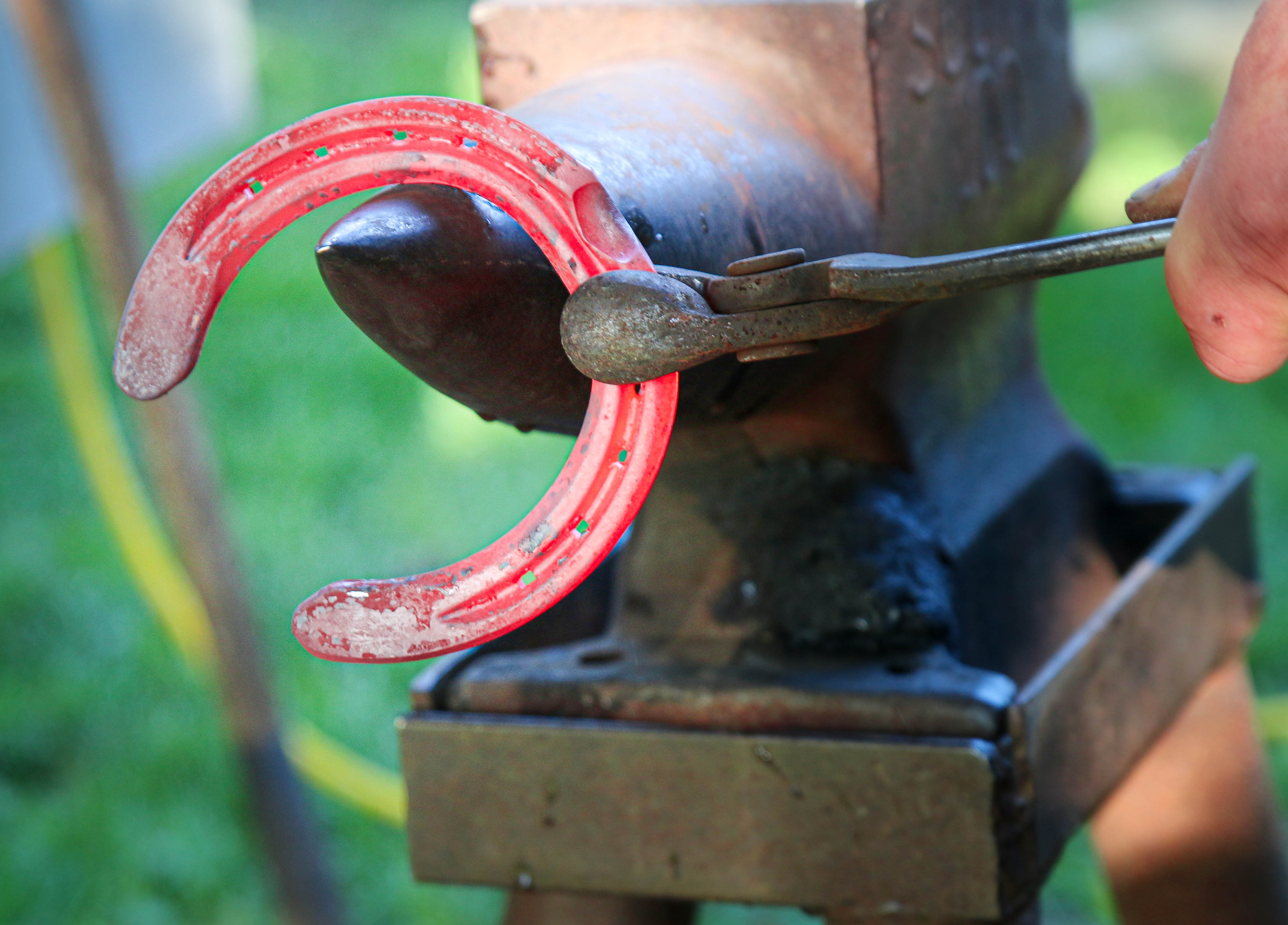
Today, Ben is a competition legend, the current equivalent of the industry “pillars” he remembers looking up to. In 2020, he won both the Mustad Specialty Forging Championship and the Capewell North American Challenge Cup.
“At Convention, they don’t let you know how you place, it’s all a surprise at the banquet,” he says. “I thought I had a decent go, but it’s always a massive surprise.”
More than the recognition and the satisfaction of hard work paying off, Ben says competition has been invaluable in building the business he has today in Carthage, New York.
“Ability wise it has taught me efficiency—what matters, what doesn’t, what to get hung up on, what not to,” he says. “Competition teaches discipline, which carries over into business efficiency and keeping a real strict schedule to keep up on all your work and keep everybody happy.”
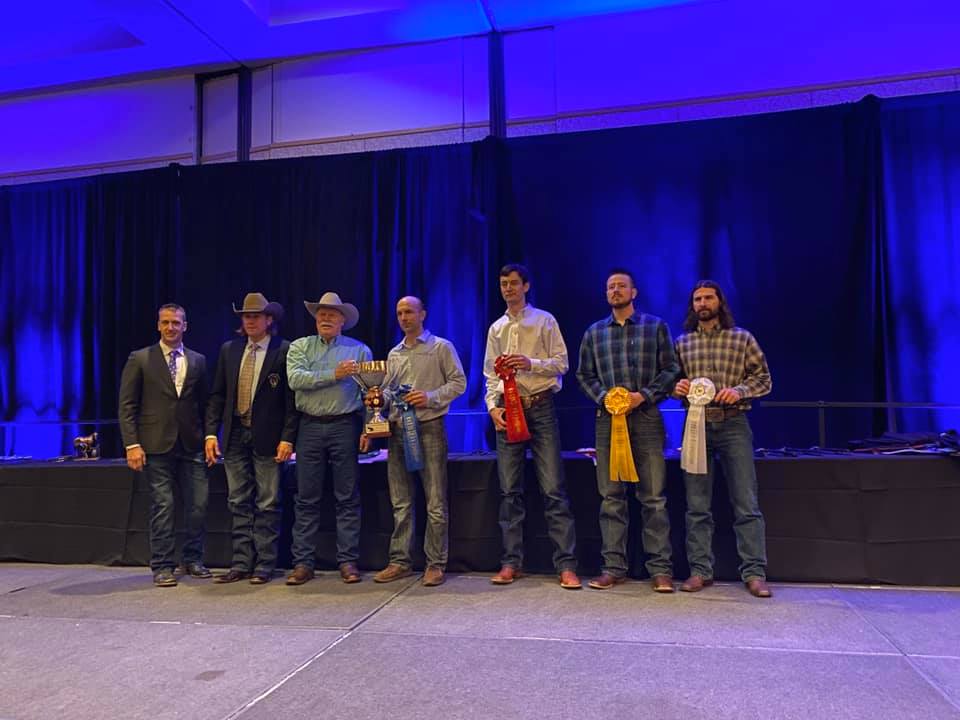
Practice Makes Perfect
With multiple championships and a full client schedule, you would think Ben has all the experience needed for competition. But for him, practice—a lot of it—makes perfect. In the weeks leading up to an event, he practices twice a day for 1.5 to two-hour sessions. He focuses on building different shoe styles and individual sections of each shoe. That gives him the confidence to shoe a horse he has never seen before.
On competition day, his goal is to make a set of shoes equal to or better than the best pair made in his shop. When contest rules allow, he brings those shoe samples and places them on the floor within easy viewing to serve as a reminder of what he is striving for.
“As long as I make at least that or better, I’m happy because that’s at least what I practiced,” he says.
Early on, he says he struggled to replicate the same quality in competition as he did at home and remembers lamenting over his disappointment with other farriers. Specifically, highlighting his frustration at being able to produce quality shoes at home, but not in competition.
“They probably thought to themselves, ‘everybody thinks what they do behind closed doors is amazing.’ But for the longest time, it was true for me,” he says. “I had to overcome this hurdle and produce at least as good as I could in my shop. I felt like I shortchanged myself if I didn’t make a shoe in competition at least as well as I had in the shop.”
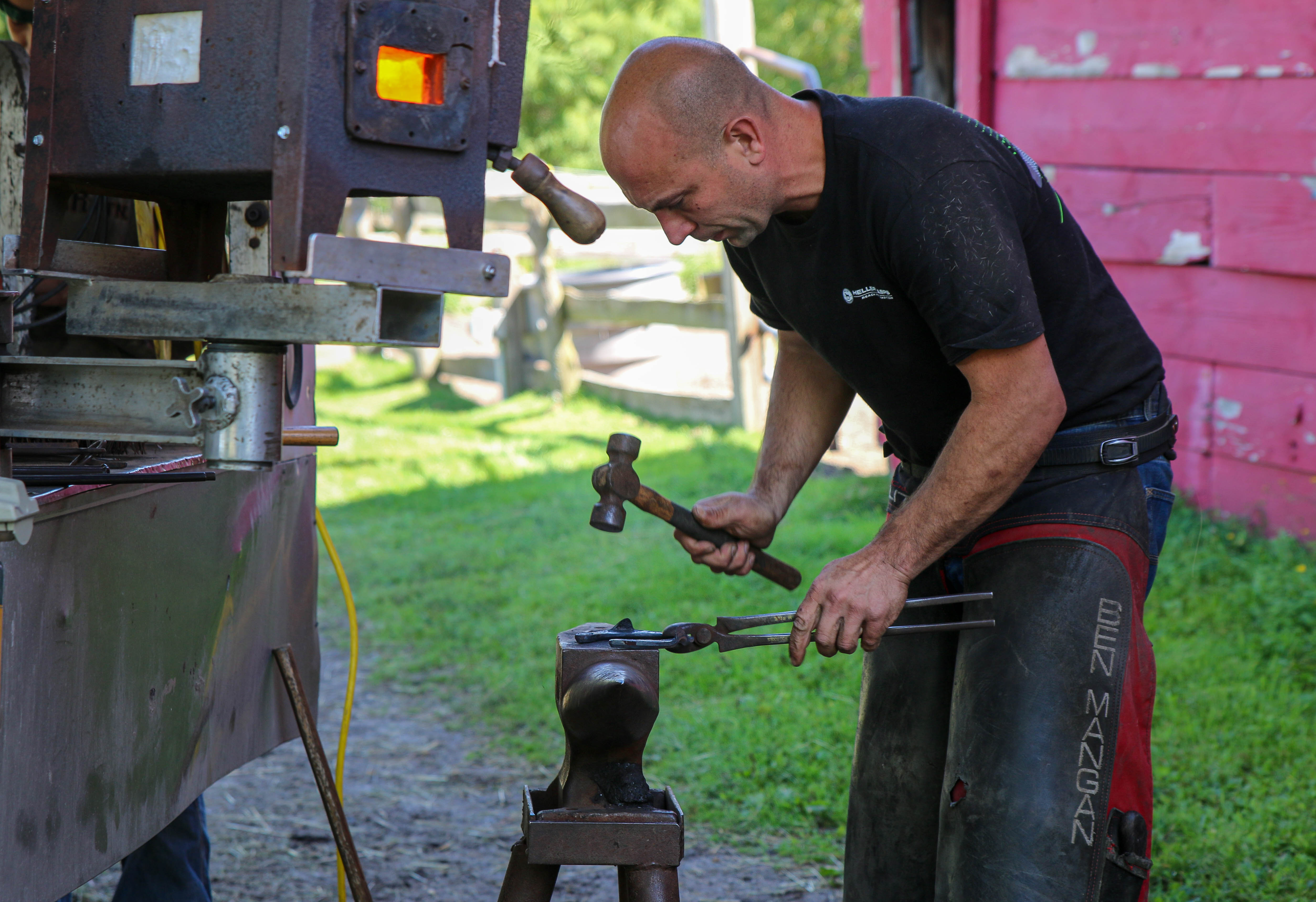
Advice from Texas-farrier Gene Leiser helped Ben change his mindset. Gene says practicing the same process repeatedly until it becomes routine. That means creating a game plan and sticking to it. Altering a process midstream just never works out. That doesn’t mean change is never possible, but Ben recommends trying it at home rather than at an event.
“When the clock starts and I do each heat exactly the same. I don’t know if that makes me a good competitor, but it’s the only way I can do it,” Ben says. “I try to replicate exactly what I’ve done before.”
As with any competition, it’s easy to get caught up in perceived judging bias. But Ben says in forging and horseshoeing competitions the outcome is black and white. The bottom line is that the person who builds the best shoe is the winner.
“I was in that trap for a while where I thought it was like a secret club or that there was some sign language going on,” he says. “But if what you make is good, they cannot deny you the win.”
Competition Translates to Business
Although Ben started working as a farrier at age 14 and traveled with multiple farriers as a young person, he had never seen someone handmake a set of shoes until 2001. He started working with Rick Banker, CJF and Ben soon realized there was much more to learn about the trade.
“I had hot fit and pulled a few clips working with my uncle but it was economy horseshoeing and he didn’t make shoes,” he says. “Working with Rick is where I got hooked on handmade shoes and he encouraged me to work through the certification process.”
To gain extra experience and practice Ben also entered local forging and horseshoeing competitions. He soon discovered that the methodical approach needed for certification and competition was equally important in his business.
Specifically, he says the Mercury Matchplay class at the World Championship Blacksmith contest helped develop that focus and efficiency. The clock starts with a set time and subtracts time as competitors furiously work to complete the assigned shoe. That process, he says has taught him to stick to a routine and not change a process on the fly.
“Even if I had 12 minutes or six minutes I made the shoe in the same style and heat, I just to went faster when given less time,” he says. “There is no reason to skip steps in competition. It’s the same in your everyday work.”
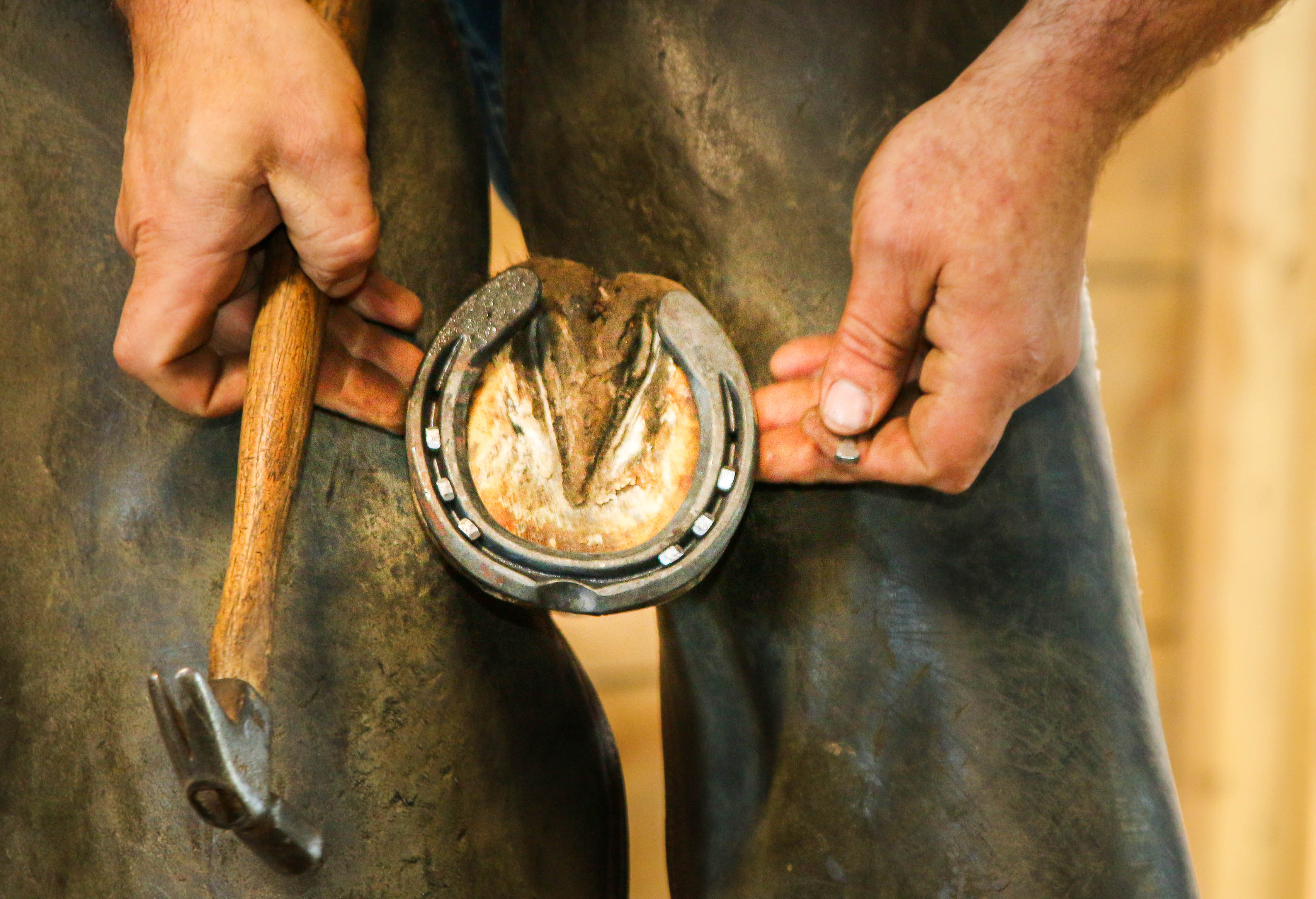
While competition requires handmaking shoes, he relies on manufactured St. Croix Forge Shoes in both steel and aluminum for his day-to-day operations. Keeping the process simple enables Ben and his sons to see 100 to 110 horses a week, all within 45 miles of their home. Staying within a defined geography rather than following a specific discipline allows Ben to end his workday by 4:30 or 5 p.m.
“We shoe a lot of Quarter Horse pleasure horses and use 3/8” rim shoes,” he says. “We also shoe a lot of off-the-track eventers and use the St. Croix Forge shoes because they have a little narrower web and a finer punch which is helpful for horses that don’t have enough hoof wall.”
To stay efficient, Ben uses the St. Croix Forge shoes as the foundation or his shoeing program. He buys them all unclipped and customizes them in the shop where he pre-grinds shoes, punches, and pre-clips shoes on the side, in the front or on the quarters.
“We buy all our shoes unclipped because it gives us the flexibility to put them where we want them,” he says.
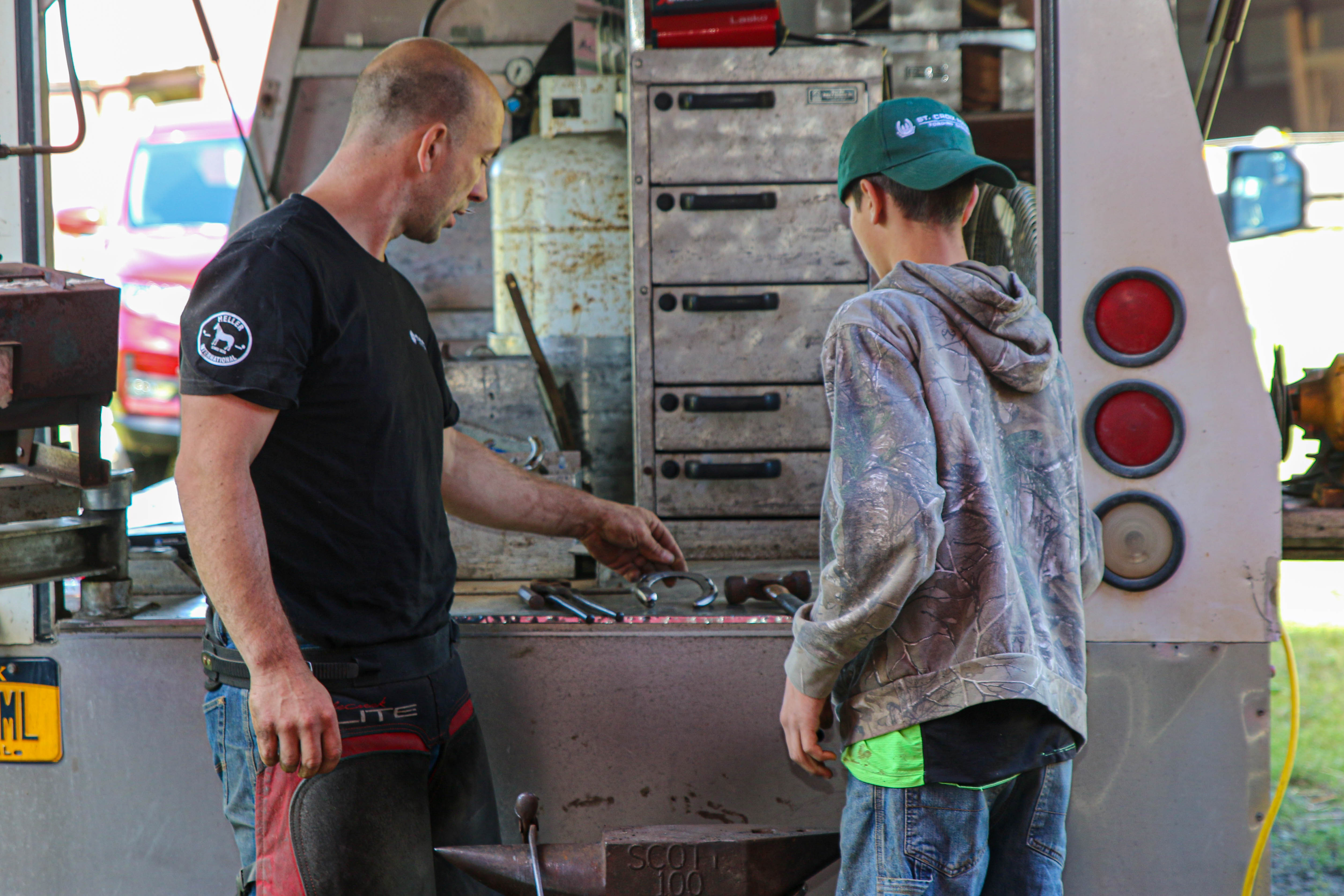
His two sons, Shamus (18) and Troy (14), work alongside him. The trio works out of one truck—the same Stonewell set-up Ben used to launch his own business at age 17. The set-up has been on seven different trucks of all makes and models, but still has the original drill press he installed in 1998.
Sticking to staying simple, the rig features only the essentials—one drill press, a grinder, a toolbox, and bottles of propane. That leaves plenty of room for another helper’s tools or for box fans on the few days a year it is hot enough in New York to need them.
“Keeping it simple is what allows us to see around 20 horses a day,” he said. “We know what style shoe a horse is going to wear and use four kinds of nails that are suitable for our horses and business.”
Between January and September 2020, Ben purchased about 38,000 nails. His go-to nails are the Capewell slim blade series, with the SB5 being his most common choice. He also uses SB 4.5” and SB6 pointed for city head. In aluminum shoes, he uses 3.5 race nails and also uses the Delta Combo 5.
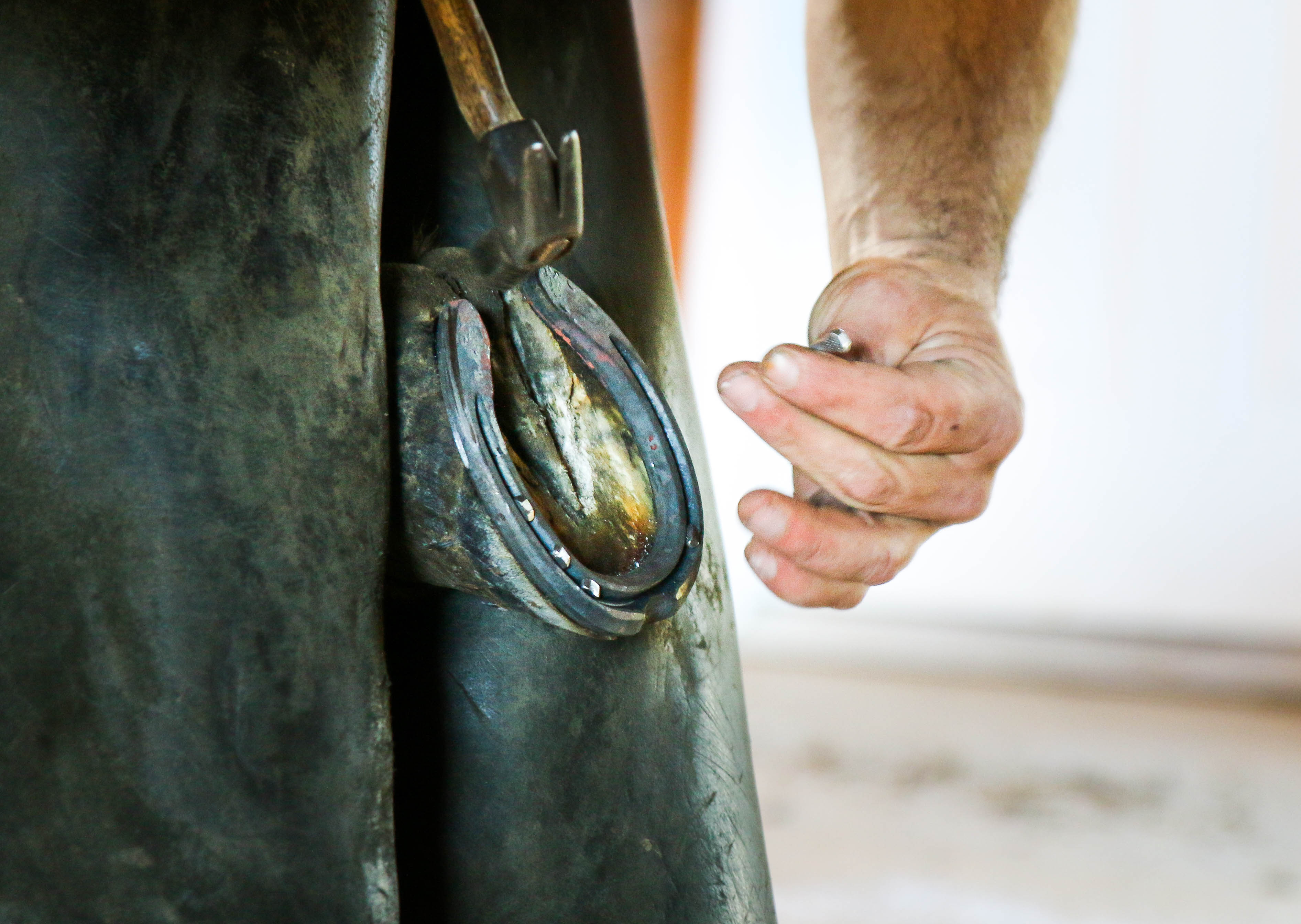
“The Capewell nails are really strong. They are a stout nail and don’t shear when you clinch them,” he says. “I’ve been using them ever since working with my uncle when he switched from another brand. They are stout nails that can take torque and we’ve had good luck with them.”
When the trio heads out to meet clients, they follow a systematic approach that is common on construction sites or manufacturing lines, but unique in the farrier trade. At each stop, each person is dedicated to one job. If Shamus is clinching nails, that is all he does at that site. He is not sweeping or putting nails in his dad’s box. Similarly, Troy may be tapping, grinding, and putting shoes on the fire.
“That way no one is sidelined by worrying about something else, all we have to think about is that one job,” Ben says. “At the next job somebody else might clinch but that is all they do there. We tell our customers that this is the best way for us to stay focused and perform our best work. I often wonder if this comes from competition.”
Although his daughters don’t join him on the road, they have an important part in the business. Last year, Anastasia (17) and Marie (15), began mixing a thrush remedy made of copper sulfate, white vinegar and mix with pine tar that Ben sells to clients.
“We live in an area that is very wet and there are lots of bacteria in those conditions so we see a lot of thrush,” he says. “We sell the thrush treatment to our customers and by putting it on we’ve seen the feet are better and that means we can shoe them better and faster.”
Take the Best, Leave the Rest
The fundamentals of farriery work are the same regardless of where and what types of horses are seen. However, the most successful farriers take what they learn from clinics, apprenticeships, and workshops and use what works for their business and their clients.
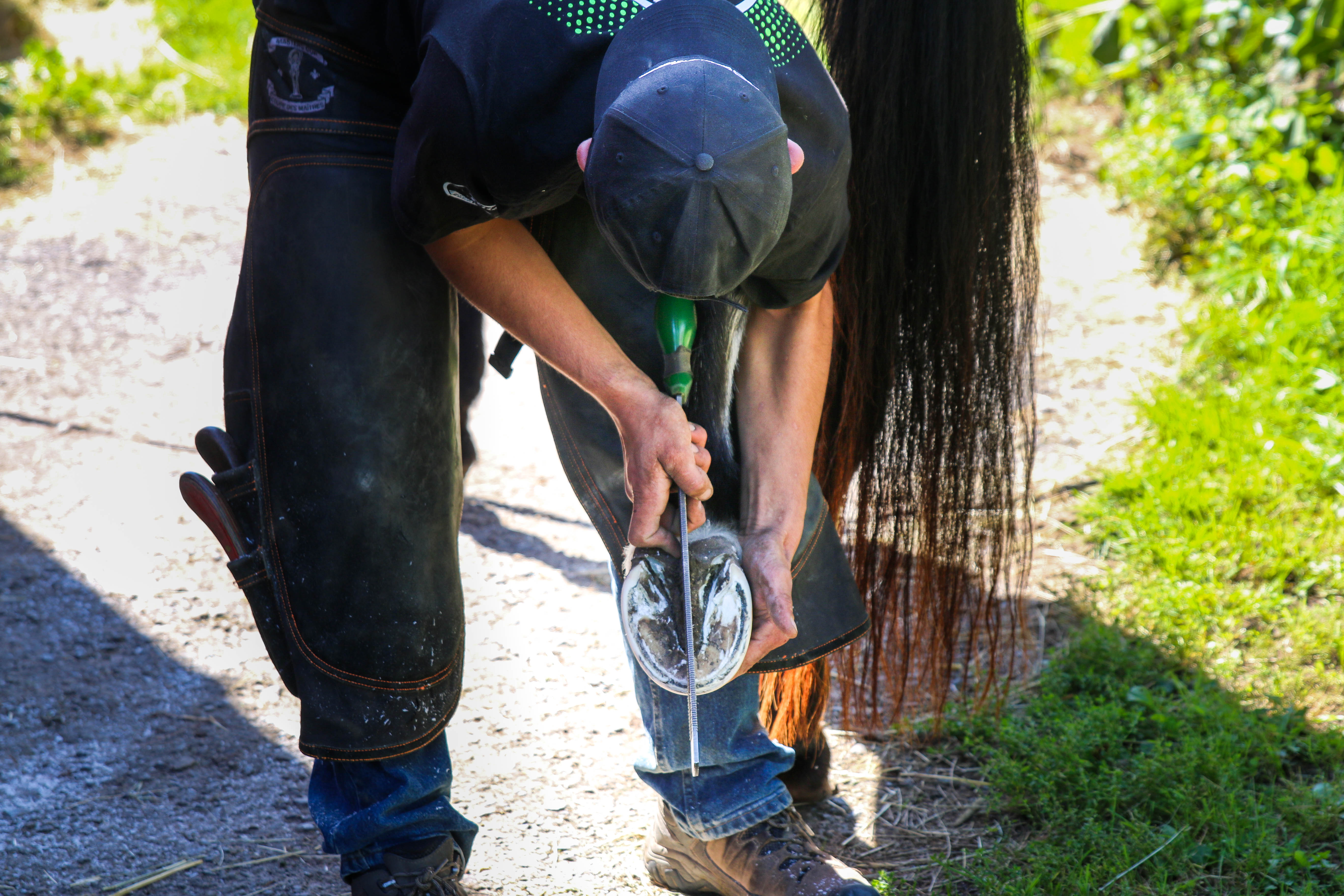
“I think there is a little trend now that people jump in over their head and basic shoemaking gets skipped,” he says.
He appreciates the foresight his uncle had in sending him out with numerous farriers when he was a teenager. Among others, Ben worked with Jack Miller who at the time was one of the first to charge higher fees. At the same time, Ben rode with his uncle “a normal horseshoer” and guys who didn’t even have a truck cap.
“I took from all of that and used it in my business. I don’t brag to be the most expensive and it is not a numbers game for us,” he says. “We are efficient in what we do and it is that efficiency and production that has worked well in the business.”